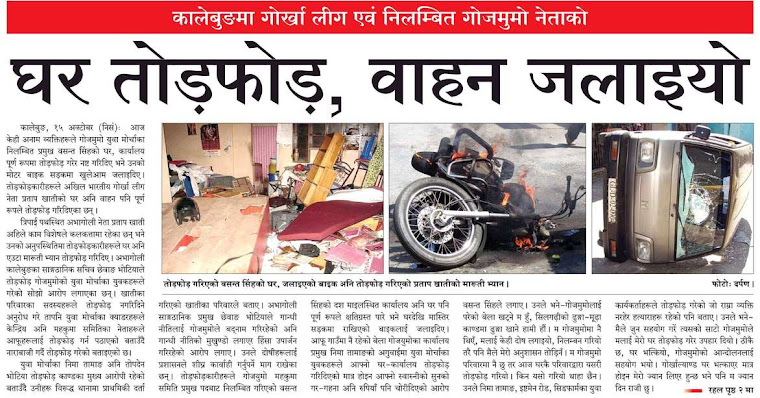First there was Telangana, and now disquiet and violence have enveloped the hills of Darjeeling. And unlike the Gorkhaland agitation of the ’80s, there is a conscious attempt to extend violence to the plains. The statehood question has, since the days of our freedom struggle, been complex. India through ages has assimilated cultures and ethnicities, emerging as a composite and plural society. Celebration of ‘Unity in Diversity’ has been the signature tune of Indian nationhood. All political forces engaged in freedom struggle recognised this basis for building modern, post-independent India. The sole exception was RSS. Advocating the enforcement of ‘oneness’ with emphasis on religious identity, subsuming the historical diversities of ethnicity, language, culture and geographic reality. Therefore, it was not a coincidence that the Constituent Assembly rejected the conceptual framework of creating over 100 states, which the RSS preferred. The emphasis was on creating linguistic states, which while recognising historical pluralities would also reinforce modernism to strengthen national unity. The States Reorganisation Commission, formed in 1953, recommended formation of linguistic states. However, language was not the only criterion. Administrative and economic viability, and geographic reality were also emphasised. That is why the entirety of Hindustani-speaking areas was not clubbed into a single state. However, the post-Independence period has not been free from tensions. The inherent nature of capitalist development has resulted in regional imbalances. Lack of development has been a basis for demanding new states, often undermining the principle of linguistic states. On the other hand, ethnic and linguistic considerations, which ignore the question of viability, have been pushed to the fore. Care has to be taken to evolve mechanisms like autonomous councils for some communities — with adequate constitutional safeguard for their respective identities and greater role in deciding their own future. Imperialism, particularly US imperialism, has been using the identity question to destabilise nations. So, formation of new and obviously smaller states cannot be an answer to the aspirations of our people.
- Nilotpal Basu ,Member, CPI(M) Central Secretariat
- Nilotpal Basu ,Member, CPI(M) Central Secretariat























No comments:
Post a Comment